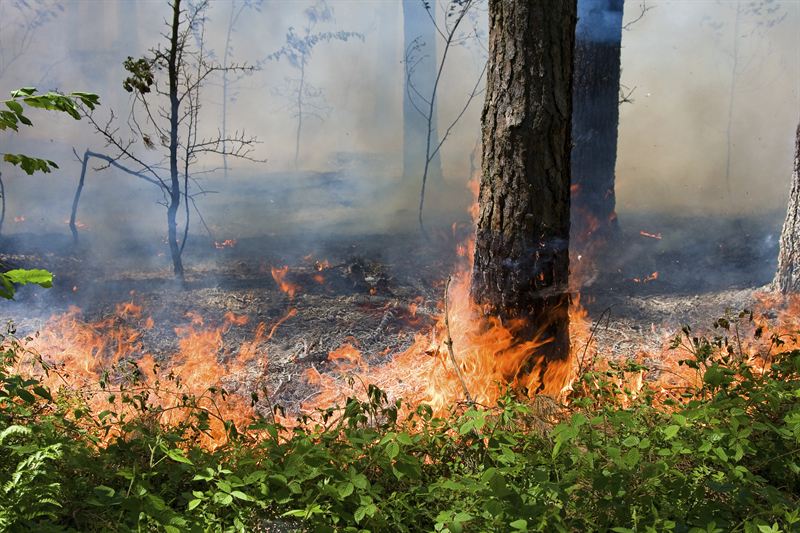Western Wildfires: Wake Up Call to Get Financially Prepared with a Wildfire Reality Check

SACRAMENTO — As residents across western states including California, Montana, Oregon and Washington wait to hear the latest wildfire update, the Property Casualty Insurers Association (PCI), says insurers are standing by ready to assist policyholders. PCI reminds all homeowners and renters in western states that fire season is year round and now is the time to get your finances in order with a Wildfire Reality Check.
“Mother Nature is packing a punch this September with wildfires and hurricanes. If you live near the many burning wildfires, your first step is to listen to local authorities when they call for evacuations,” said Christopher Hackett, PCI senior director of personal lines policy.” If your home is damaged by a wildfire, immediately reach out to your agent or insurance company and start the claims process. One phone call starts the road to rebuilding. You can also reach your insurer on their app or company website.”
The National Interagency Fire Center reports there are 65 major active fires burning in western states with 50 of those large fires currently uncontained. The National Fire Preparedness Level has been elevated to 5. So far 1.5 million acres have burned. Property losses have not all been tallied as the fire fights continue.
"Homeowners and renters that have property insurance and lost their home or had significant damage from a wildfire can use Additional Living Expense (ALE) coverage right now, so they can get out of a shelter or off a friend’s couch,” said Hackett. “Your ALE coverage will help cover additional expenses associated with setting up alternative living arrangements such as an apartment or hotel while your home is rebuilt. Remember to save receipts so you can be reimbursed. Losing your home in a fire is very traumatic. Insurers are here to explain the process.”
For those not impacted by the many wildfires, now is a good time to make a home inventory and contact your insurer to do a quick insurance update.
Take a Wildfire Reality Check
Tip 1: Conduct an Annual Insurance Check Up
Call your agent or insurance company to discuss your policy limits and coverage annually. Make sure your policy reflects the right square footage and materials of your home. Consider purchasing building code upgrade coverage.
Tip 2: Know What Your Policy Covers
The details matter. Understand if you have a replacement cost policy that pays to replace all your items at current market price or an actual cash value policy that takes depreciation into account and pays less for aged items.
Tip 3: Update Your Policy to Cover Home Improvements
If you make home improvements, be sure to call your agent or company to update your coverage. Make sure your insurer knows about the changes so the new tile or room is covered if you must rebuild.
Tip 4: Maintain Insurance
If your home is paid off, be sure to maintain homeowners insurance. Do not be caught after a fire with no way to rebuild your home. Check with loved ones with paid off homes to be sure they continue to carry homeowners insurance.
Tip 5: Get Renters Insurance
Renters can lose everything in a fire just like homeowners. Many auto insurers bundle renters’ insurance coverage with an auto insurance policy for very affordable prices.
Make a Home Inventory
Recovery will be easier if you make a Home Inventory
Document the contents of your home before a fire occurs
Use your smartphone to video your belongings. Keep your inventory & photos outside home or in the cloud.
Tip 1: Video or photograph each room of your home. Remember to document drawers and closets.
Tip 2: Describe your home’s contents, what you paid, where and when you bought items in your video.
Tip 3: Remember to note and video your electronics, appliances, sports equipment, TVs, computers, tablets.
Tip 4: Store key documents like a home inventory in the cloud or fireproof case.
Tip 5: Don’t forget to video or photograph what is inside your garage.
What to do After a Wildfire – The Claims Process
Tip 1: If a wildfire does occur, call your agent or company immediately to begin the claims process. Additional Living Expenses are part of your homeowners policy and will provide you new housing as you rebuild.
Tip 2: Consider purchasing flood insurance to protect your home from flooding and landslides after a wildfire. Soils can loosen with the loss of trees threatening homes during the next rainy season.
Tip 3: Don’t be victimized twice. Be careful when hiring a contractor to rebuild your home. Obtain multiple bids from contractors, Require and check references and licenses, Get everything in writing.
Tip 4: Don’t pay everything up front, pay in installments as work is completed and inspected.
Tip 5: Keep paying your mortgage as you rebuild. Homeowners insurance may cover some of your additional living costs in a rental home.
Step by Step Recovery Guide for Homeowners- click here
Toll Free Insurance Company Contact Numbers- click here


